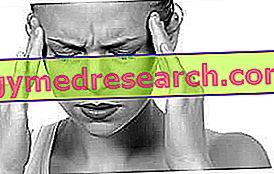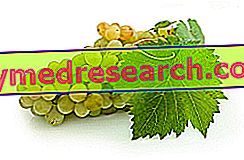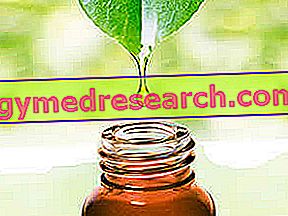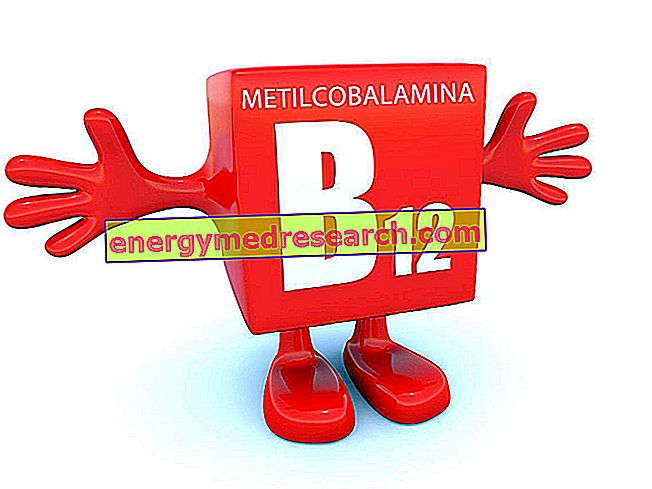In the jargon, the term "sbornia" indicates a real alcohol intoxication. Acute alcoholism - a more technical synonym of hangover - is nothing more than a physiological state induced by an exaggerated consumption of alcohol, such as to make it accumulate in the blood much faster than it can be metabolized by the liver.

What to do
- Drinking lots of water is the first trick to put into practice after a hangover. Water promotes rehydration of the body and restores fluids lost due to alcohol. Drinking plenty of water is also an excellent remedy to encourage the elimination of alcohol: although in small quantities, good hydration favors the elimination of small amounts of ethanol through sweat and urine
- Sip a couple of glasses of water slowly before going to sleep to keep the hangover when you wake up as much as possible.
- Make a healthy breakfast, based on bread, jam and rich in fruit: let's remember briefly that during the hangover the blood sugar is quite low
- If you really can't do without it and if the hangover is light, you can dedicate yourself to light physical activity. Outdoor walks are recommended.
- During the night rest it is advisable to place the head on a specific orthopedic pillow to lighten the cervical pain (in this case dependent on drunkenness)
- Contact your doctor when you are afraid of developing an alcohol addiction (or being at risk)
What NOT to do
- Drink alcohol
- Take drugs or other substances together with alcohol
- Drive after drinking alcohol
- Continue to drink alcohol even if you feel the first signs of a hangover
- Take pain medication to try to stop the pain: we remember, in fact, that a good part of pain-relieving drugs has side effects in the stomach and liver
- Leave the house (especially in winter) with light clothing. The hangover promotes the vasodilation, consequently the dispersion of the body heat increases (with risk of hypothermia)
- Dedicate yourself to sporting practices following a hangover: after having swallowed industrial doses of alcohol, physical exercise is not particularly indicated since the post-hangover reflexes are definitely slowed down. Furthermore, sport after getting drunk increases the risk of dehydration and hypoglycemia
- Breastfeeding your baby after a hangover
What to eat
- Fruits and vegetables
- Crackers, rusks and "dry" foods can somehow mitigate the feeling of nausea that accompanies the hangover
- honey
- If necessary, supplement the diet with a supplement of group B vitamins. In fact, remember that the body spends some important B vitamins for ethanol detoxification
What NOT to Eat
- Avoid eating hard-to-digest foods, such as dips, fries and fat-rich foods after a hangover
- Nerve drinks (coffee, cola, etc.): it is strongly recommended to avoid taking these drinks after the hangover as they can promote the secretion of gastric juices, irritate the mucous membrane of the stomach and promote diuresis (aggravating the obvious dehydrated state of the organism)
Natural Cures and Remedies
- Nausea and vomiting, typical post-hangover after-effects, can be kept under control with some natural remedies: herbal teas made with ginger, fennel, lemon balm and chamomile are particularly useful for this purpose
- Natural remedies against hangover can be used to improve the appearance and expression of the face, evidently fatigued and tired after a hangover. For this purpose, the masks prepared with cucumber (or more simply by putting some slices of this vegetable on the eyes) can give the face a fresher expression.
Pharmacological care
Natural remedies are relatively effective for hangover. However, it seems that the active ingredient silymarin contained in some plants by the hepatoprotective action (artichoke and milk thistle) can help.
- In common language, the term "hangover" indicates a condition which, however debilitating, is resolved within 24-48 hours. For this reason, it is generally not necessary to take medication to alleviate symptoms. Remember, in fact, that the hangover symptoms disappear only when all the alcohol present in the blood is metabolized by the liver.
Prevention
- Prefer non-alcoholic drinks
- If you really can not completely abstain from alcohol, it is suggested to order alcoholic drinks very elongated with water, useful both to prevent hangover and to reduce the after - effects of drunkenness.
- Drink alcohol in moderate quantities: the acceptable dose of alcohol should not exceed 30-40 g per day (the equivalent of a couple of glasses of wine)
- Prefer beer or wine to spirits
- Avoid drinking alcohol on an empty stomach
- Do not drink alcohol during pregnancy and breastfeeding
- Do not drink alcohol before driving
- Do not mix alcohol with drugs or substances of abuse
Medical treatments
- If the hangover is mild and the side effects are relatively acceptable, medical intervention is not necessary. Let us remember once again that the hangover of the hangover completely vanish only when all the alcohol present in the blood is metabolized by the liver
- Only in the most serious cases, it is necessary to intervene with a gastric lavage, to eliminate the alcohol that has not yet been metabolized
- When the hangover is severe and the state of dehydration of the organism is particularly evident, an intravenous administration of liquids and electrolytes may be necessary (rehydrating therapy)
- When alcohol is addictive just like a drug, the therapeutic approach is different. In this case, one can no longer speak of a simple hangover: the most appropriate term is alcoholism or alcohol addiction syndrome. In such circumstances, it is strongly recommended to undertake a targeted medical therapy - aimed at alcohol detoxification - possibly supported by psychological treatment.



